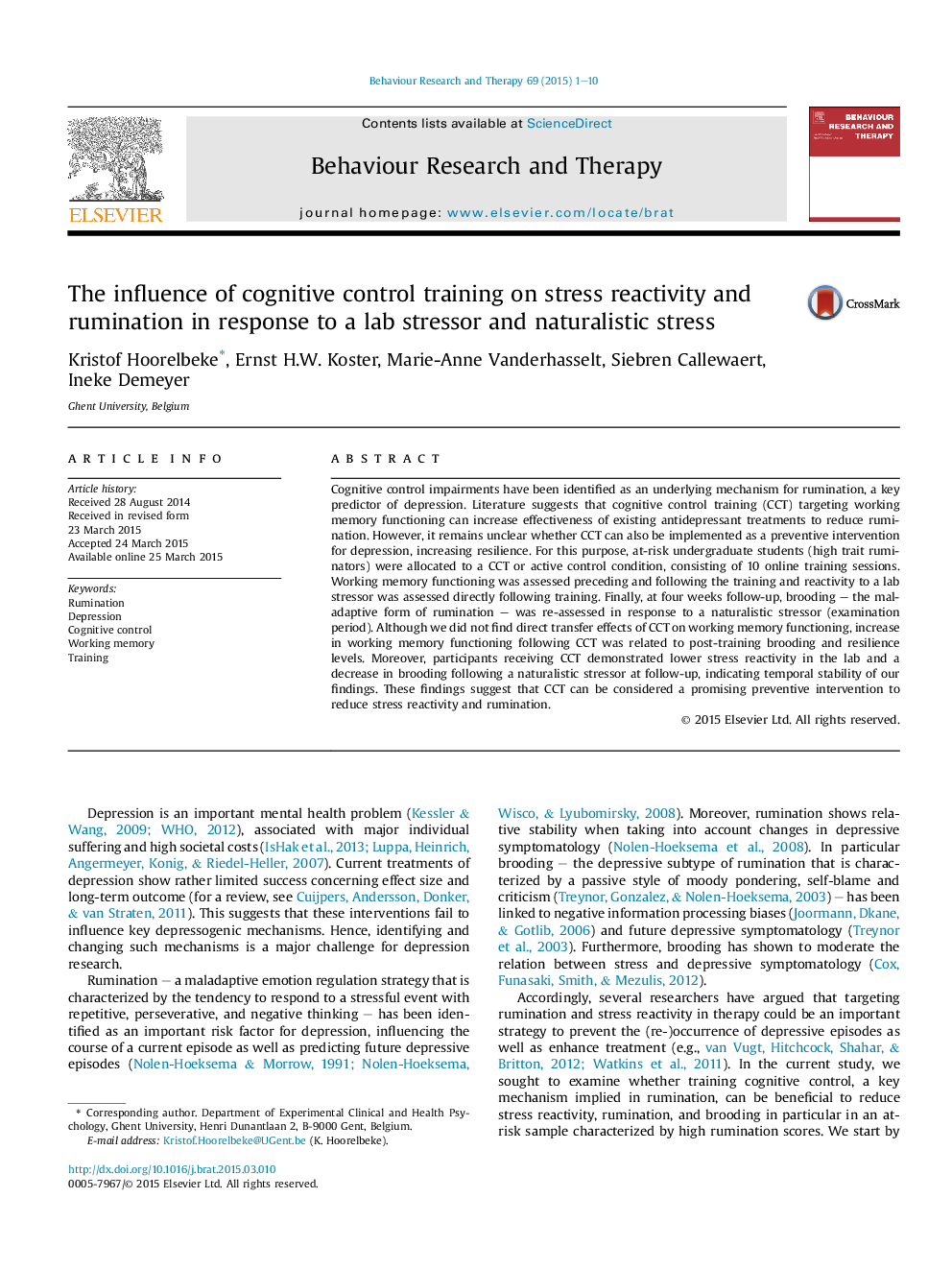| Article ID | Journal | Published Year | Pages | File Type |
|---|---|---|---|---|
| 7262368 | Behaviour Research and Therapy | 2015 | 10 Pages |
Abstract
Cognitive control impairments have been identified as an underlying mechanism for rumination, a key predictor of depression. Literature suggests that cognitive control training (CCT) targeting working memory functioning can increase effectiveness of existing antidepressant treatments to reduce rumination. However, it remains unclear whether CCT can also be implemented as a preventive intervention for depression, increasing resilience. For this purpose, at-risk undergraduate students (high trait ruminators) were allocated to a CCT or active control condition, consisting of 10 online training sessions. Working memory functioning was assessed preceding and following the training and reactivity to a lab stressor was assessed directly following training. Finally, at four weeks follow-up, brooding - the maladaptive form of rumination - was re-assessed in response to a naturalistic stressor (examination period). Although we did not find direct transfer effects of CCT on working memory functioning, increase in working memory functioning following CCT was related to post-training brooding and resilience levels. Moreover, participants receiving CCT demonstrated lower stress reactivity in the lab and a decrease in brooding following a naturalistic stressor at follow-up, indicating temporal stability of our findings. These findings suggest that CCT can be considered a promising preventive intervention to reduce stress reactivity and rumination.
Related Topics
Health Sciences
Medicine and Dentistry
Psychiatry and Mental Health
Authors
Kristof Hoorelbeke, Ernst H.W. Koster, Marie-Anne Vanderhasselt, Siebren Callewaert, Ineke Demeyer,
